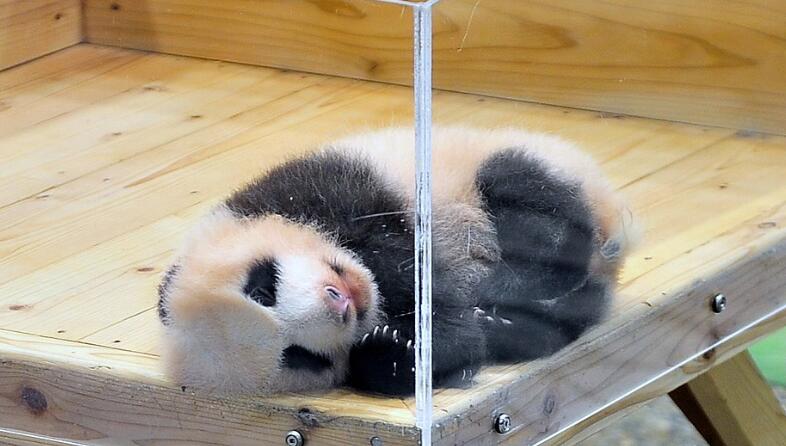It was a special homecoming for the off-springs of Mei Mei, Liang Bang, and Young Ming, three expatriate pandas who have lived in Japan for the past 13 years. For the first time in their lives, Ai Bang, Ming Bang, Mei Bang, and Yong Bang saw their ancestral hometown at the Chengdu Research Base of Giant Panda Breeding in Sichuan, China on December 14, 2012 and February 26, 2013 respectively. Here they will begin their new lives in the land of their forefathers. Repatriated pandas remain quarantined for the first month after arriving at the panda base while staff continuously monitor and evaluate their assimilation into the new environment.
In 1993, the Chinese Association of Zoological Gardens in partnership with the Wakayama Adventure World in Japan arranged a cooperative agreement of giant panda breeding research. According to the agreement, the Chengdu Panda Base would select pandas to send to Japan for the cooperative study and would then be responsible for implementing the agreement Mei Mei and Yong Ming were the two pandas chosen and since 2000, they successfully bred 9 litters with 13 cubs. To date, this is the largest giant panda breeding population outside of China. This highly successful and influential research program boasts worldwide acclaim among the scientific community.
According to international cooperation agreements regarding panda breeding, technical exchanges, and research, all panda offspring born abroad legally belong to China. Once the pandas reach sexual maturity or upon expiry of the cooperation agreement, they are to be returned to China where they are considered a national treasure. Mei Mei and Yong Mill’s other cubs, Xiong Bang, Long Bai, Qiu Bang and Xing Bang have all come home in 2004,2007,2009 respectively, and now live in China.






















































































